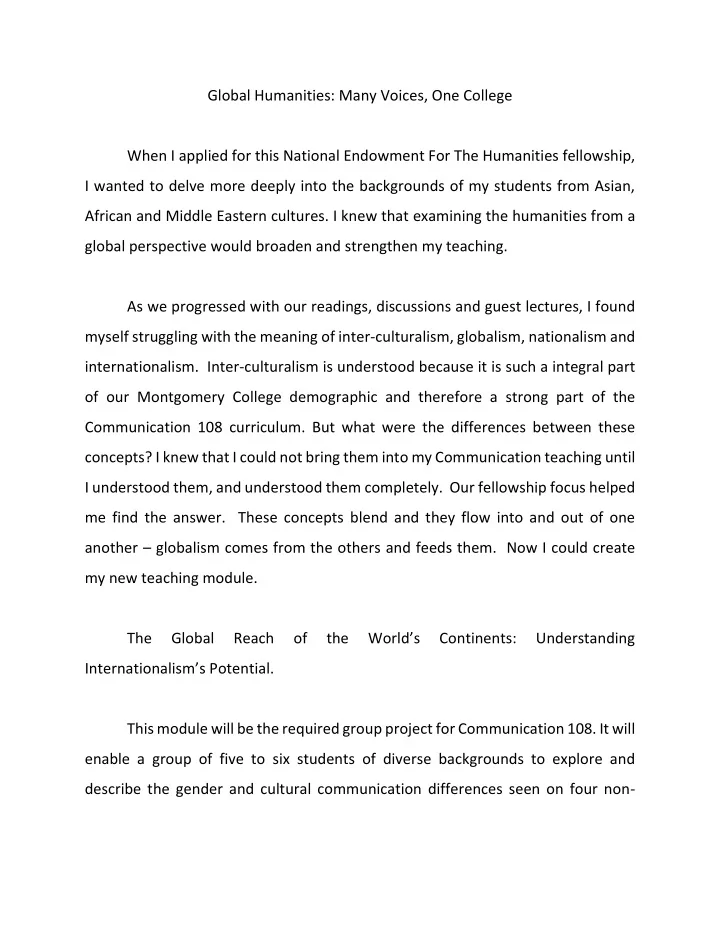

Global Humanities: Many Voices, One College When I applied for this National Endowment For The Humanities fellowship, I wanted to delve more deeply into the backgrounds of my students from Asian, African and Middle Eastern cultures. I knew that examining the humanities from a global perspective would broaden and strengthen my teaching. As we progressed with our readings, discussions and guest lectures, I found myself struggling with the meaning of inter-culturalism, globalism, nationalism and internationalism. Inter-culturalism is understood because it is such a integral part of our Montgomery College demographic and therefore a strong part of the Communication 108 curriculum. But what were the differences between these concepts? I knew that I could not bring them into my Communication teaching until I understood them, and understood them completely. Our fellowship focus helped me find the answer. These concepts blend and they flow into and out of one another – globalism comes from the others and feeds them. Now I could create my new teaching module. The Global Reach of the World’s Continents: Understanding Internationalism’s Potential. This module will be the required group project for Communication 108. It will enable a group of five to six students of diverse backgrounds to explore and describe the gender and cultural communication differences seen on four non-
European continents. The group will select one country from Africa, Asia, Australia and South America and probe/do research to answer the following questions: 1. What role do children, men and women have in the country? 2. How is education offered to all these groups? 3. What are the norms for addressing men and women in conversation? 4. Describe body language. So it is my intent to take my students out of my classroom and out of this country to connect them to other parts of our globe and globalism. It is my hope that my students will recognize and understand the cultures of numerous countries in non- European geographic areas of the world and the intercultural communication their people bring to the United States. They will learn that globalism is a two- way/multidirectional process that flows and is much more than economics and business. Students will be encouraged to visit embassies and international organizations, interview members of the chosen countries and read international articles. The project will have active possibilities in addition to research. Students will be assessed on their group research paper, the group presentation, the breadth of their bibliography and their group process participation report.
I had the opportunity to test some of this with my current class. With little lead time and no guiding questions, my students tackled four entire continents. They did an admirable job and gave me valuable feedback which has enabled me to refine the project to what I am presenting here. This definitely took them out of their comfort zone. My students also write and present a speech on their own immigration history in the beginning of the semester. It serves as an ice-breaker and a window to American diversity. This group project with its focus on globalism will build on this. Through this group assignment, “The Global Reach of the World’s Continents” students will “gain a deep, comparative knowledge of the world’s peoples.” Together we will help fulfill the mission of the National Endowment For The Humanities and the mission of Montgomery College. Thank you! Maria Pedak-Kari December 4. 2018
Recommend
More recommend